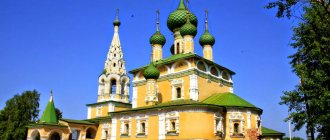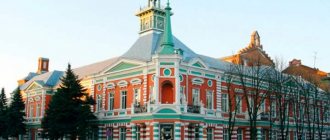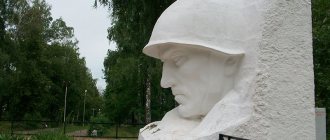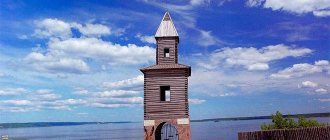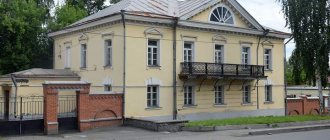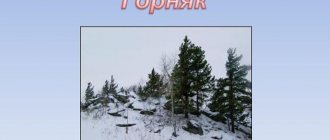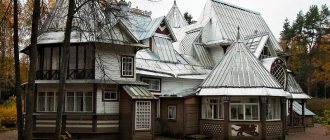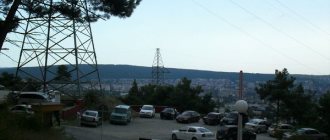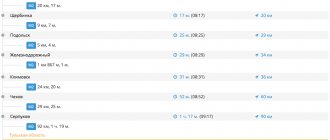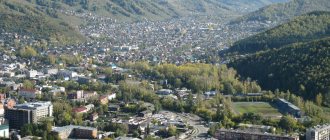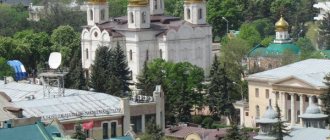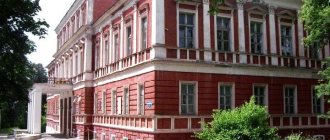Origin story
The Altaians descended from the Yenisei Kyrgyz; their related peoples are the Kirghiz, Teleuts, Telengits, Khakass, Yakuts, Shors, and Siberians.
Southern and Northern Altaians do not have significant linguistic differences, cultural, everyday and anthropological differences. Depending on the regions that inhabited the lands of Altai, the Altaians were divided into Kumandins, Chelkans, and Tubalars.
The majority of the Altai people live in the Altai Territory, on the West Siberian Plain and the outskirts of the southeast. A small number live in Kazakhstan and other CIS and Asian countries. Before the revolution, Altaians were called Altai Tatars.
Indigenous population of the Altai Territory
The Altai Territory is inhabited by more than 80 nationalities and nationalities. Until 1991, the indigenous population was represented by Altaians, who made up 2.3% of all residents of the region, while 91.3% of Altaians lived within the boundaries of the Gorno-Altai Autonomous Region. In connection with the formation of the Altai Republic (1991), the proportion of Altaians in the region sharply decreased. Indigenous peoples also include Kumandins, Teleuts, Tofalars, Tubulars.
The results of the 2002 All-Russian Population Census once again confirmed that the Altai Territory is one of the most multinational territories of Russia. During the census, 120 nationalities were counted (in Russia there are approximately 160 nationalities). According to the census, the most numerous groups in the region were: Russians - 2,607,426 people. (92%), Germans – 79,502 people. (3%), Ukrainians – 52,700 people. (2%), Kazakhs – 9825 people. (0.4%), Tatars – 8899 people. (0.3%), Belarusians – 8280 people. (0.3%), Armenians – 8105 people. Other nationalities are represented by a small number of groups: Azerbaijanis - 5852 people, Mordovians - 4769 people, Chuvash - 3385 people, Gypsies - 3405 people, Uzbeks - 1956 people, Moldovans - 1573 people, Jews - 1096 people, Georgians - 1089 people, Udmurts - 920 people, Poles - 896 people, Bashkirs - 728 people. and etc.
ALTAI people are the indigenous population of the Altai Republic, Altai Territory, Kemerovo Region. According to the All-Russian Census of 2002, the number of Altaians is 67,239 people, of which in the Altai Republic itself - 62,192 people, in the Altai Territory - 1,880 people. Altaians also live in Kazakhstan and Uzbekistan.
The ancestors of the Altaians are the Turkic-speaking tribes Tele and Tyukyu. In the XIII, XV–XVIII centuries. Mongol-speaking tribes took part in the ethnogenesis of the Altaians; the descendants of some became part of the Altaians as seok clans (Naiman, Derbet, Mogol, Choros).
The language is Altai (Turkic group of the Altai family). Dialects: southern (Altai-Kizhi, Telengit) and northern (Tuba, Kumandin, Chelkan). In the middle of the 19th century. The head of the Altai spiritual mission, M. Glukharev, developed a writing system based on the Russian alphabet and on the basis of the Teleut dialect. Since 1922, the Altai-Kizhi dialect was used as the basis for the Altai literary language.
Ethnographically, the Altaians are divided into 2 groups: northern (Kumandins, Tubalars, Chelkans) and southern (Teleuts, Telengits, Altai-Kizhi, until the middle of the 19th century - Teles). The northern ones live in the mountain-taiga zone of northeastern Altai: the Tubalars live in the upper reaches of the Biya (the basin of the Pyzha, Koksha, and Isha rivers); Chelkans - r. Swan and Baigol; Kumandins - along the river. Biy. Settlement of the southern: Telengits - in the basin of the Chuya and Argut rivers, along the river. Chulyshman and Bashkaus; Altai-Kizhi - in the basin of the Ursul, Charysh, Koksa, Kan rivers, the middle reaches of the Katun; Teleuts - along the river. Maima and Cherga (Altai Republic), in Prichumyshye (Zarinsky, Kytmanovsky districts of the Altai Territory), along the river. Big and Small Bachata (Belovsky district, Kemerovo region). The groups differ markedly in anthropological characteristics, and until the beginning of the twentieth century. And by the type of economic activity. Northern Altaians (obsolete "black Tatars") belong to the Ural contact race. Their basis of life was hunting, fishing, hand-hoe farming, and gathering. They lived in permanent settlements. They wore clothes made of canvas. Southern Altaians (obsolete “Oirots”, “White Kalmyks”) belong to the most Mongoloid Central Asian type). They were engaged in nomadic and semi-nomadic cattle breeding. Ancillary occupations: hunting, farming, there was a simple system of irrigation canals. The main type of housing is a portable felt yurt and a cone-shaped ail, the traditional type of clothing is a sheepskin coat. Iron smelting and blacksmithing played an important role among all tribes.
The traditional religion was shamanism, the worship of numerous spirits inhabiting Heaven, Earth, and the Underworld. In the XVIII–XIX centuries. Buddhism had a noticeable influence (at the end of the 19th century the religious national movement Burkhanism took shape), and in the middle of the 19th century. – Christianity. There was a lunar calendar in which the months were named according to phenological or economic characteristics: “the month of the cuckoo”, “the month of great heat”, “the month of ploughing”, “the month of Kandyk”, etc. The southern Altaians had a common 12-year calendar with the Mongols. animal cycle.
The penetration of the Russian population into the Altai Mountains and the establishment of the Altai Spiritual Mission (1828) contributed to the transition of some Altaians to sedentary life. Villages arose: Maima, Ulala, Myyuta, Chemal, Biryulya, Cherny Anuy, Kebezen, Paspaul, etc. The newly baptized Altaians were provided with assistance in the construction of huts, as well as with bread, clothing, and livestock. They learned home economics, agriculture, the hoe was replaced by the plow, then the plow. After 1913, Altaians were classified as settled inhabitants. In the 1990s. 72.9% of Altaians lived in villages, the main occupation was distant-pasture livestock raising, hunting; agriculture was developed in the basins and wide areas of river valleys (Chuyskaya, Kuraiskaya, Abaiskaya, Uimonskaya).
KUMANDINS - (variants of the self-name Tadar-Kizhi, Tadarlar, Kumandy-Kizhi) - a Turkic people living in the upper and middle reaches of the river. Biya. Administratively, these are the territories of the city of Biysk, Krasnogorsky and Soltonsky districts of the Altai Territory, Turochaksky district of the Altai Republic and Tashtagolsky district of the Kemerovo region. According to the results of the All-Russian Census of 2002, there are 3,114 Kumandy people. Of these, 1,704 live in the cities of Barnaul, Biysk, Gorno-Altaisk, and Tashtagol. In the Altai Territory - 1663 people. Until 2002, the Kumandins were counted as a separate nationality only in the 1926 census. At that time, there were 6,327 people on the territory of the RSFSR. All of them lived in the Siberian Territory, including 4948 in the Biysk Okrug, 1384 in the Oirat Autonomous Region (now the Altai Republic). In subsequent censuses, the Kumandins were included in the Altaians. In 2000, the Kumandins were classified as indigenous peoples of the Russian Federation (Resolution of the Government of the Russian Federation No. 255 of March 24, 2000).
The anthropological type of the Kumandins, along with other northern ethnic groups of the Altaians (Chelkans and Tubalars), stands out as an independent North Altai racial-systematic unit, occupying an intermediate position between the Ural and South Siberian anthropological types.
The Kumandin language is a northern dialect of the Altai language, which is part of the Uyghur group of Turkic languages. There are three dialects in the Kumandin language: Turochak, Solton and Old Bardin. Writing was created at the beginning of the 20th century. based on the Cyrillic alphabet, but currently the Kumandin language exists only in colloquial form.
It is customary to distinguish the upper (ore kumandy) and lower (altyna kumandy) Kumandins, living in the upper and lower reaches of the river, respectively. Biya. The identification of these groups is based on some distinctive features of the culture and economy of the Upper and Lower Kumandins.
The traditional occupation of the Kumandins is hunting, fishing, animal husbandry, collecting medicinal raw materials, collecting berries, nuts, herbs, etc. In addition, Kumandins work as doctors, teachers, engineers, builders, etc. In the city of Biysk, many indigenous people worked at the timber mill, which is engaged in timber harvesting, its primary processing, and also produces finished products. But the plant is currently on the verge of closure, and as a result, many Kumandin residents have lost their jobs. Kumandy residents living in rural areas mainly worked on collective farms, state farms and other agricultural enterprises, but recently these forms of management are losing their activity and again - loss of jobs. Due to the low professional level, poor adaptation to the market policy of the state, the inability to sell their products, predatory attitude towards nature (deforestation, timber rafting, etc.), consolidation of villages, and loss of jobs, many Kumandins are on the brink of survival.
Information sources:
- Encyclopedia of the Altai Territory. Barnaul, 1997. T. 2. pp. 34–35.
- National composition of the population of the Altai Territory: results of the 2002 All-Russian Population Census. Barnaul, 2005. 63 p.
- Nazarov I. I. Kumandins: traditional economy and material culture: monograph / I. I. Nazarov; resp. ed. N. A. Tomilov. Barnaul: 2013. 192 p.
Traditional clothing of Altaians
Traditional clothing for Altaians, first of all, should be comfortable. Both men and women wear long, collarless shirts with loose sleeves. The suit includes wide pants. In the summer, a robe is worn over the suit, and in the winter, a sheepskin coat is worn. Robes and fur coats are painted with bright patterns.
Sheepskin coats are worn with the fur inside and in warm weather, since this area is characterized by a harsh climate. Both fur coats and robes do not have buttons, but are belted with a wide belt.
Women wear traditional floor-length cardigans called chegedek over their robes.
Hats are also an integral part of the Altai wardrobe. Cylindrical and round hats are made from fabric and fur, depending on the season. Since ancient times, the Altaians knew how to weave, so they themselves produced fabric from hemp and nettles.
Life and traditions of the Altai people
In the tribe, Altaians are divided into clans, which are descended from the father's side. In the clan, men can inherit hunting lands.
Weddings are celebrated with bright colors and are celebrated for two days. The man in the family is the breadwinner who treats the woman with respect and takes full responsibility for her.
From childhood, boys are taught hunting and fishing, and girls are taught hospitality - how to serve tea and sweets. After the children grow up, the youngest son remains with the parents, who, according to Altai traditions, looks after his parents until death.
The people of Altai are engaged in:
- Agriculture;
- Hunting and fishing;
- Cattle breeding;
- Collection of berries and roots;
- Manual processing of birch bark, felt, wood, leather.
“Professionals acted”
Local resident Sergei Pustovalov believes that only professionals could kill so many horses, and all of them by the shoulder:
“Who knows, maybe there’s something wrong with the owner. But he is a good person, I have known him since childhood. A hard-working man, always in the harrow. These horses didn’t come to him from somewhere, he earned them with his hump.”
Shooting of horses in the Petropavlovsk region
Photo: Alexey Kucheryavykh
Nikolai Drokov said that 15 horses survived. Most likely, they were in a different place during the massacre:
“Now I most want to find this fascist and look into his balls. And after that we must continue to live.”
The farmer plans to continue breeding horses. Later he sells them to Kazakhstan (alive). To restore the livestock, you will need at least 5 million rubles. This is the amount the horse owner estimates the damage to be. The animals that were shot were not insured.
Religion of the Altai people
Altaians are very spiritual and religious people. They worshiped the supreme deities, the rulers of the kingdom of the dead, the spirit of water, the spirit of the mountain and other natural spirits. The religion involved sacrifice when horses were killed.
Also, the indigenous people of Altai believed in evil spirits, which is why they still have shamans to this day. Shamans helped to expel them, as well as to cure diseases. The shaman can be distinguished from the crowd; their traditional costumes are significantly different from other Altaians. Shamans have many religious attributes in the form of a tambourine, feathers, etc.
Shamans could cure diseases, give good advice and even predict the future.
Telengits
A small ethnic group within the Altai, living for a long time in the southern part of the Altai Mountains, the territories bordering Mongolia and China. They are often called teles; the Telengits originate from the ancient Turkic tribe “tele”. The "Tele" or Dolgan tribe appeared in Chinese chronicles of the 5th-6th centuries. n. e.
Among the Telengits, as well as among all Altai small ethnic communities, the institution of clan (seok) plays a huge role. In the light of family relations, new marriages are determined and family relationships develop. Today, the Telengits distinguish 18 seok clans, the most numerous of which are Kobok, Irkit, Teles, Kipchak, Sagal, Mool.
Traditional shamanism is closely intertwined in the Telengit religion; they felt the influence of Orthodoxy, Buddhism (Lamaism) and the so-called “White Faith” of Burkhanism. From the Buddhists, the Teles took the animal calendar with a twelve-year cycle.
The main shamanic cults were the cult of nature or the worship of spirits (eezi). They revered high mountain passes, having overcome which, they always left gifts for the spirit of the mountain, stacked stones (oboo), stuck branches into them and tied light-colored ribbons on them.
Telengits have always revered reservoirs, sacred springs, rivers and mountain lakes. They believed that each body of water and healing springs had its own mistress “Suu eezi”; they imagined the mistress in the form of a young girl, an adult woman or an old woman. The larger the body of water, the more powerful and insidious its owner.
The bodies of totem and sacred animals were revered; the cult of the dog, similar to the Tuvans, Yakuts and Buryats, was of great importance in shamanic rituals. It is with the dog that the bodies connect reproduction and the entire life cycle of people. Like all nomads, Teles treat fire with respect, consider it a living being, have always protected it in every possible way, and forbidden it from being taken out of their homes.
Traditional food of the Altai people
Altai cuisine consists mainly of game meat and domestic animals. They prepare flatbreads baked in ash, as well as homemade cottage cheese, cheese, sour cream, and even moonshine with milk. Of the animals, tripe is especially popular.
Tea occupies a special place in the diet of Altai people. It is prepared in a very unconventional way by adding salt and cream or butter.
There are many popular people from Altais, including artists, singers and athletes. Altaians have many legends and tales that they pass on from generation to generation.
By visiting Altai, you can get acquainted with the history, culture and traditions of the indigenous population, as well as their legends and customs.
Altaians
The indigenous small people of Altai are the Altaians, who inhabit the foothills and high mountains of this beautiful mountainous country. In the middle of the 19th century, the Altaians, descendants of the ancient Dzungars, began to gradually move from a nomadic pastoral life to a sedentary one, and for a long time were divided into tribes and clan territorial groups. Today they are divided into several nationalities: Altaians, Shors, Chelkans, Teleuts (Teles), Kumandins, Tubalars, Uriankhais, Telengits.
The origin of the Altaians is best illuminated by their language. The Altai language is fundamental to numerous groups of languages, Tungus-Manchu, Japanese-Korean, Turkic-Mongolian and forms an entire Altai language family.
The traditional Altai dwelling became the ail, a round national dwelling that took its origins from the yurts of Central Asian nomads. The Altai ail is certainly hexagonal; this is a sacred number for this people. The dwelling is built from wooden beams, its roof is pointed, and in its middle there is a small hole for the smoke to escape.
Today, in most Altai ethnic villages one can observe the proximity of a Russian traditional house next to an Altai village. Today housewives use the ail as a summer kitchen, and the family lives in the house. The food of this people mainly consists of meat, horse meat, beef, lamb, milk and fermented milk products, sweet and salty dough.
The most important social events of the Altai pagans are “tyazhyl-dyr”, the so-called “festival of green leaves”. It takes place at the beginning of summer on the new moon and its meaning is similar to the Russian Trinity. In autumn, the festival “saaryl-dyr” or “festival of yellow leaves”, dedicated to the beginning of the winter season, is celebrated on a grand scale.
Once every two years the republic hosts the national holiday “El-Oyin”. Delegations from all regions of the republic, representatives of Kazakhstan, Tuva and Mongolia come to this holiday. The daytime part of the holiday takes place like the ancient Altai Zaisan sports games, with performances by folklore groups and national costume and throat singing competitions. The evening part of the holiday takes place in a modern way with performances by invited artists, laser and pyrotechnic shows.
